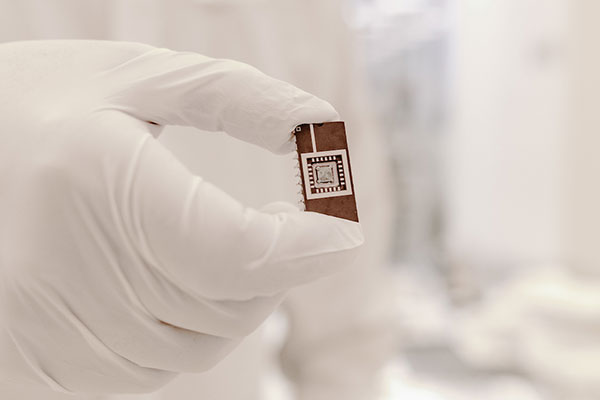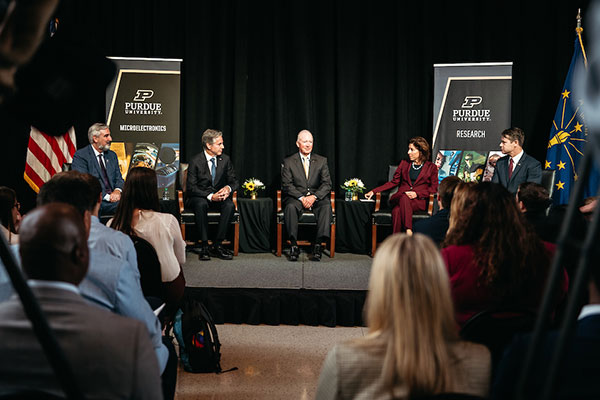Purdue and Semiconductors
Purdue keeps building momentum as the United States’ leading university in the development of new and better semiconductors to improve the nation’s standing in an increasingly technological world. The U.S. Department of Defense has chosen the Indiana-led proposal “Silicon Crossroads” as one of eight Microelectronics Commons Hubs, ensuring that Purdue’s contribution will continue to grow.
Semiconductors are a vital component of devices that Americans use every day – including smartphones, cars and laptops – as well as the military equipment that protects our country. Yet the United States, which spearheaded development of semiconductors, now makes only 10 percent of them, and not the most advanced ones. About three-quarters of all semiconductors are produced in East Asia.
Anchored by the Birck Nanotechnology Center, Purdue is well positioned to conduct the research and training necessary to boost the U.S. footprint in semiconductors through Purdue researchers, co-located industry, and students gaining hands-on experience.

Birck and the CHIPS Act
The semiconductor work done by Purdue and its Birck Nanotechnology Center is gaining increasing prominence because of the bipartisan federal CHIPS and Science Act of 2022. CHIPS aims to boost domestic research and development of semiconductors and microelectronics. The CHIPS Act provides $52.7 billion over 10 years for semiconductor research, development, manufacturing and workforce development in the United States.
Purdue’s ties with the CHIPS Act are many:

Soon after the signing of the CHIPS Act in 2022, Birck welcomed distinguished visitors that demonstrated the nanotechnology center’s significance: U.S. Secretary of State Antony Blinken, Commerce Secretary Gina Raimondo and Deputy Secretary of Defense Kathleen Hicks.

Fast Company ranked Purdue among “the World’s 50 Most Innovative Companies of 2023,” citing the CHIPS Act and the university’s leading-edge degrees program to train semiconductor engineers.

Keith Krach, chairman and co-founder of Purdue’s Krach Institute for Tech Diplomacy, was previously an undersecretary in the U.S. State Department, where he was described by EE Times magazine as an “architect” of the CHIPS Act.